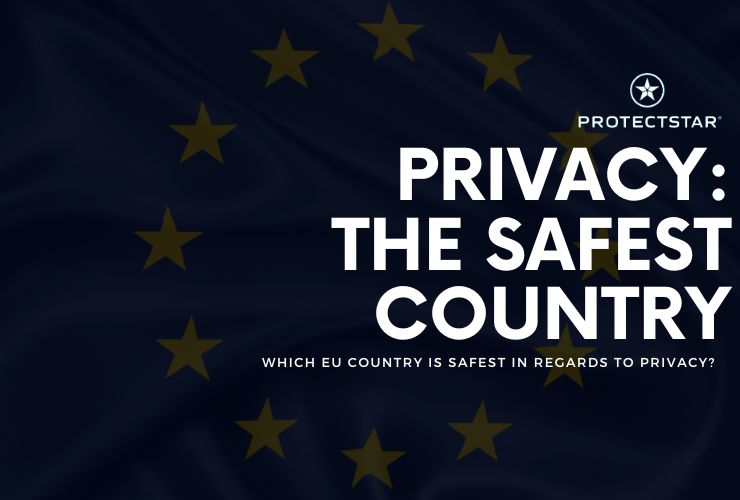The Safest Country in the EU for Privacy

In an era where digital privacy is of paramount importance, the European Union (EU) stands out as a region with a strong commitment to protecting citizens' data. However, not all EU countries are created equal in terms of privacy laws and enforcement. The question of which country offers the safest environment for privacy in the EU is a complex one, influenced by a variety of factors including key disclosure laws, mandatory decryption requirements, and general attitudes toward personal data protection.
Key Disclosure and Mandatory Decryption Laws
Key disclosure laws, also known as mandatory key disclosure, require individuals to surrender cryptographic keys to law enforcement when requested. These laws are designed to allow authorities to access encrypted data for digital forensics and use it as evidence in legal proceedings. Mandatory decryption laws, on the other hand, compel individuals to provide decrypted data without necessarily revealing the encryption keys.
The implementation of these laws varies widely across the EU, with some countries adopting stringent measures that could be seen as infringing on personal privacy, while others maintain a more balanced approach that considers individual rights against self-incrimination.
Privacy in the EU: A Mixed Landscape
The European Union is known for its robust data protection regulations, most notably the General Data Protection Regulation (GDPR). However, when it comes to key disclosure and mandatory decryption, the landscape is more varied. Let's examine some of the key EU countries to understand how they handle these issues.
1. Germany: A Strong Advocate for Privacy
Germany is often cited as one of the best countries in the EU for privacy. The German Constitution provides strong protections against self-incrimination, and the country has been reluctant to adopt laws that compel individuals to disclose encryption keys. Under German law, suspects cannot be forced to provide evidence that could incriminate themselves, a principle known as "nemo tenetur." This means that in private usage, there is no legal basis that would compel a suspect to hand over cryptographic keys, making Germany a safe haven for those concerned about their digital privacy.
Additionally, Germany has been a vocal critic of mass surveillance and has implemented strict regulations to protect personal data. The country's Federal Data Protection Act (Bundesdatenschutzgesetz) complements the GDPR by providing additional layers of privacy protection.
2. Belgium: Privacy with Certain Caveats
Belgium offers a balanced approach to privacy, with some provisions that protect individuals from compulsory decryption while also allowing law enforcement to request assistance from non-suspects. The Belgian law on computer crime, enacted in 2000, allows judges to order authorities to search computer systems and compel telecommunications providers to assist with decryption. However, this law does not apply to suspects or their families, thereby offering a degree of protection against self-incrimination.
Belgium's approach reflects a concern for privacy while still allowing law enforcement to perform necessary digital investigations. This makes Belgium a relatively safe country for privacy, though not as robust as Germany in protecting individuals from mandatory key disclosure.
3. Finland: Comprehensive but Balanced
Finland's privacy laws are comprehensive, requiring system owners and administrators to surrender necessary passwords and information to law enforcement. However, suspects themselves are exempt from this requirement under the Coercive Measures Act. This exemption aligns with the principle of protecting individuals from self-incrimination, similar to the legal protections found in Germany.
Finland is also known for its transparent government practices and a strong legal framework that prioritizes the privacy of its citizens. While there are provisions for mandatory decryption, the protections offered to suspects help maintain a balance between law enforcement needs and individual privacy rights.
4. France: A More Stringent Approach
France, while being a strong proponent of data protection laws like the GDPR, has implemented stricter measures when it comes to mandatory decryption. French law allows judges or prosecutors to compel individuals to surrender encryption keys or decrypted data during investigations. Failure to comply can result in severe penalties, including imprisonment.
This stringent approach is designed to aid in the fight against terrorism and organized crime but has raised concerns among privacy advocates. The broad powers granted to law enforcement in France could be seen as a threat to personal privacy, making it less favorable for those seeking the highest levels of privacy protection.
5. The Netherlands: Balanced but with Exceptions
The Netherlands offers a somewhat balanced approach to privacy, with laws that allow investigators to access encrypted data under certain conditions. The Dutch law permits investigators with a warrant to access information carriers and networked systems and to compel third parties (but not suspects) to assist with decryption.
While this offers some protection for individuals, the broad powers granted to law enforcement and the requirement for third-party assistance may raise concerns for those who prioritize absolute privacy. However, the exclusion of suspects from mandatory decryption orders does provide a layer of protection against self-incrimination.
Which EU Country is the Safest for Privacy?
Based on the analysis of key disclosure and mandatory decryption laws across these EU countries, Germany stands out as the safest country in the EU for privacy. The strong legal protections against self-incrimination, coupled with the country's commitment to data protection and privacy rights, make it an ideal choice for individuals who prioritize their digital privacy.
While other countries like Belgium and Finland also offer significant protections, Germany's consistent advocacy for privacy, along with its legal framework that strongly protects individuals from mandatory key disclosure, sets it apart. France and the Netherlands, while still adhering to EU-wide data protection regulations, take a more stringent approach that could compromise privacy in certain situations.
Want to ensure nobody is spying on you? Consider downloading our Anti Spy software.